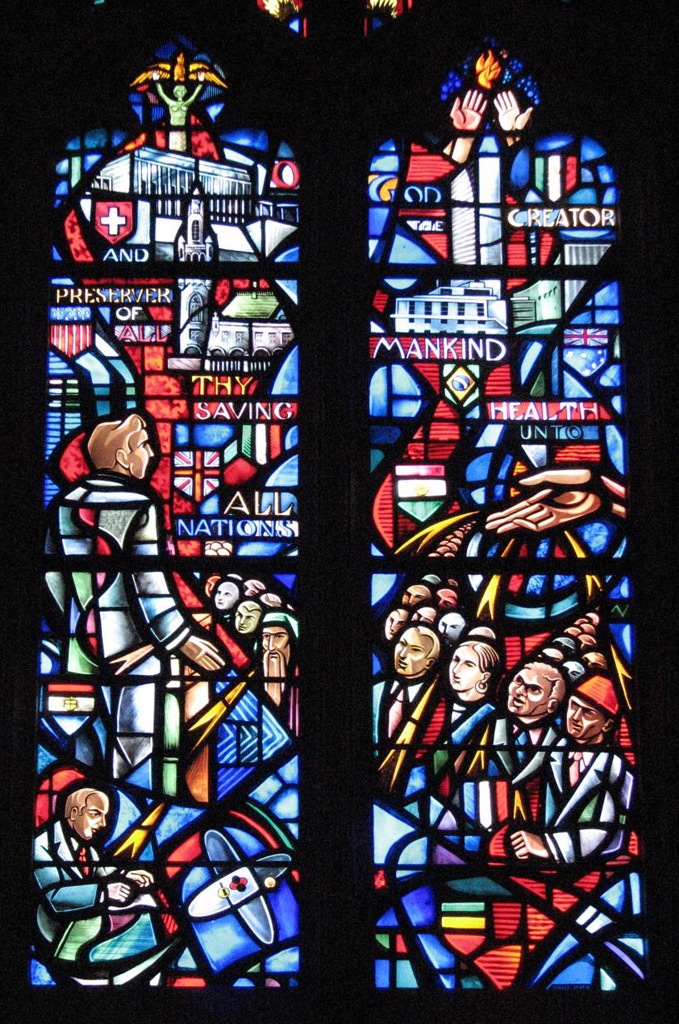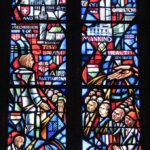Free and Forgiven
Contributed By: Rev. Wendy Depew Partelow
(Download Reflection)- formatted to print front and back of page and fold.
I started out the week with a reminder from Isaiah (46:5-11) of the power of God. In this passage of Isaiah God says:
“Remember the former things of old, for I am God, and there is no other…I am God and there is no one like me…declaring the end from the [very] beginning…My purpose shall stand and I will fulfill my intention…I have spoken and I will bring it to pass; I have planned and I will do it!”
This is a declaration by the prophet Isaiah of God’s power, authority, and ultimate sovereignty.
As Christians we believe in the grace of God. Jesus, throughout his life, showed us how to be God’s grace to others, to lift up the downtrodden and not judge people based on what we see on the outside. Jesus shows us how to look inside to the heart of the person and to look especially at the wounded, broken parts of people that require the utmost care, action, mercy and love.
There are passages of scripture – both Hebrew and Christian – that imply that salvation is based on works. An ‘if/then’ contract of sorts: if you do this, then you will be blessed, but if you do not, then this will happen. I just read one, this week in fact, in the Book of Hebrews:
“We want each one of you to show the same diligence so as to realize the full assurance of hope to the very end, so that you may not become sluggish, but imitators of those who through faith and patience inherit the promises.” (Hebrews 6:11-12, Italics are mine).
So faith and patience are required to inherit the promises; if we have faith then we inherit the promises. But what about people who have no faith or hope? They have no hope because life has not been good to them. They have no hope because whatever they seem to do does not bring them to a place where they are lifted up. They appear and maybe feel wounded and broken beyond repair. So the question becomes, ‘What is to be done?’
Isaiah reminds us that it is God who is the ultimate mediator of the if then contract. As scripture also repeats in many, many places, we do not know the mind of God.
Later on in my week I came across the rich young man who asks Jesus, “What good deed must I do to have eternal life?” (Matthew 19:16) First Jesus parses out his question: “Why do you ask about what is good? There is only one who is good. If you wish to have eternal life keep the commandments.” (19:17) But the young man wants specifics, “Which ones?” (19:18) And so Jesus lists the “do’s and don’ts”: don’t murder, don’t commit adultery, don’t steal, don’t lie, do honor your parents. But then, he says, “ALSO you shall love your neighbor as yourself.” ‘Oh I’ve done all these,’ the young man says, but “tell me what I lack.” Then Jesus discerns what the young man really wants, “[Oh]…you want to be perfect”, well then, “go sell all your possessions and give the money to the poor.” THAT’S what you can DO. And the young man goes away grieving because he can’t give up his possessions.
So Jesus says, “it will be hard for the rich man to enter the kingdom of heaven.” (23) I want to stop here because this sounds like the if then contract again. If the rich man could sell his possessions and give the money to the poor, then he would be able to inherit eternal life. It would be something he could DO.

But Jesus really doesn’t say that; he changes gears and begins talking about the kingdom of heaven, the kingdom of God, and here is where I see that the kingdom is different from eternal life. I have always read these two paragraphs together and equated eternal life with the kingdom of God/heaven, but I think Jesus is talking about two different states here: I think he’s talking about the NOW and not about the HEREAFTER. Jesus brings his disciples back to NOW.
Earlier in Matthew Jesus ordains his disciples to cast out demons and cure every disease and sickness. Then he sends them out with specific instructions, “As you go proclaim the good news, ‘The kingdom of heaven has come near.’” (Matthew 10:7) He goes further to say, that when you enter a village you should find a house that is “worthy (receptive), and let your peace come upon it, but if it is not worthy (receptive), let your peace return to you…” And so the kingdom is about peace, a personal peace, a receptive peace or openness. In Luke’s Gospel he goes so far as to say, “Yet know this: the kingdom of God has come near.” (Luke 10:11)
So, regardless of whether we accept the peace of Christ or not, the kingdom is still here for those who choose to receive it. The rich young man could not accept the peace that Jesus had to offer because he was all caught up in justifying himself through his actions, when his heart was not in the right place – or open – to accepting the kingdom that was right in front of him.
The Gospel of Luke is very specific about the kingdom:
“Once Jesus was asked by the Pharisees when the kingdom of God was coming, and he answered, ‘The kingdom of God is not coming with things that can be observed; nor will they say, ‘Look here it is!’ Or ‘There it is!’ For, in fact, the kingdom of God is within/among you.” (Luke 17:20-21)
And so the kingdom is here and now, but eternal life is something else again.
Jesus tells us to live in the here and now. He says, “don’t worry about tomorrow, for tomorrow will bring worries of its own. Today’s trouble is enough for today.” (Matthew 6:34) The rich young man is worried about what will happen to him after he dies, Jesus is telling him to be more concerned about how he is living his life today.
The disciples are rightfully troubled by all of this. If all that the rich man has and all that he has done cannot get him into the kingdom, “Then who can be saved?” And Jesus, reminding us all of who is really in charge, who really has the power, authority, and ultimate sovereignty says, “For mortals it is impossible, but for God all things are possible.” (Matthew 19:26) In other words, we can’t possibly do enough to earn our way to our salvation, it comes through the powerful grace of God.
So the thing we can do is live into the kingdom, and accept the peace that comes with knowing the Christ. And remember, the only if then contract from God that we should be attentive to is this: trust that if you take care of that today, then God will take care of the rest tomorrow.

